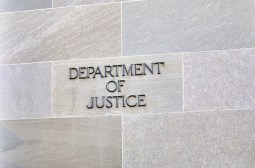DOJ extending global reach to thwart cybercrime

The Justice Department has stationed investigators and prosecutors in five countries on three different continents in the past fiscal year, focused solely on information sharing to thwart cyber criminals.
Leslie Caldwell, the assistant attorney general in the Justice Department’s Criminal Division, spoke Monday at the Internet Education Foundation’s State of the Net conference about these partnerships and the work her team has done, addressing how technology has both “expanded and complicated” the department’s capacity to detect, investigate and prosecute crimes.
“As law enforcers have become better equipped, so have the law breakers we’re working to disrupt,” Caldwell said. “Digital technology has transformed how police and prosecutors do our jobs, but it has also transformed how wrongdoers commit their crimes.”
In the past fiscal year, the FBI has embedded three permanent legal attaches in the United Kingdom, Canada and Australia, along with prosecutors in Eurojust, the European Union’s equivalent to the FBI, and Southeast Asia. These people have been tasked with facilitating information-sharing agreements, improving cooperation on investigations and building relationships with foreign law enforcement.
These partnerships build upon cyber-focused operations the department has already carried out, including one with the European Cybercrime Centre that brought down the Dark0de hacking forum — an online forum where hackers convened to buy, sell and trade malicious software, botnets, intrusion tools and stolen personal information.
“The Web hosts groups and individuals who seek to harm our core security interests — from state-sponsored hackers conducting economic espionage; to rogue militants and official cyber warfare units targeting our infrastructure; to terrorist groups plotting attacks, radicalizing recruits and spreading hateful ideologies,” Caldwell said. “These emerging threats require nimble, innovative and adaptive responses, and at the Department of Justice, we are committed to doing our part to ensure that law enforcement stays a step ahead of bad actors.”
Caldwell also renewed the department’s call for tech companies to provide law enforcement with a way to access encrypted communications during investigations. She said law enforcement is committed to obtaining the necessary warrants to access people’s electronic information, but investigators are often at a loss even when they follow the letter of the law.
“The Department of Justice is completely committed to seeking and obtaining judicial authorization for electronic evidence collection in all appropriate circumstances,” she said. “But once that authorization is obtained, we need to be able to act on it if we are to keep our communities safe and our country secure.”
You can read Caldwell’s full comments here.





